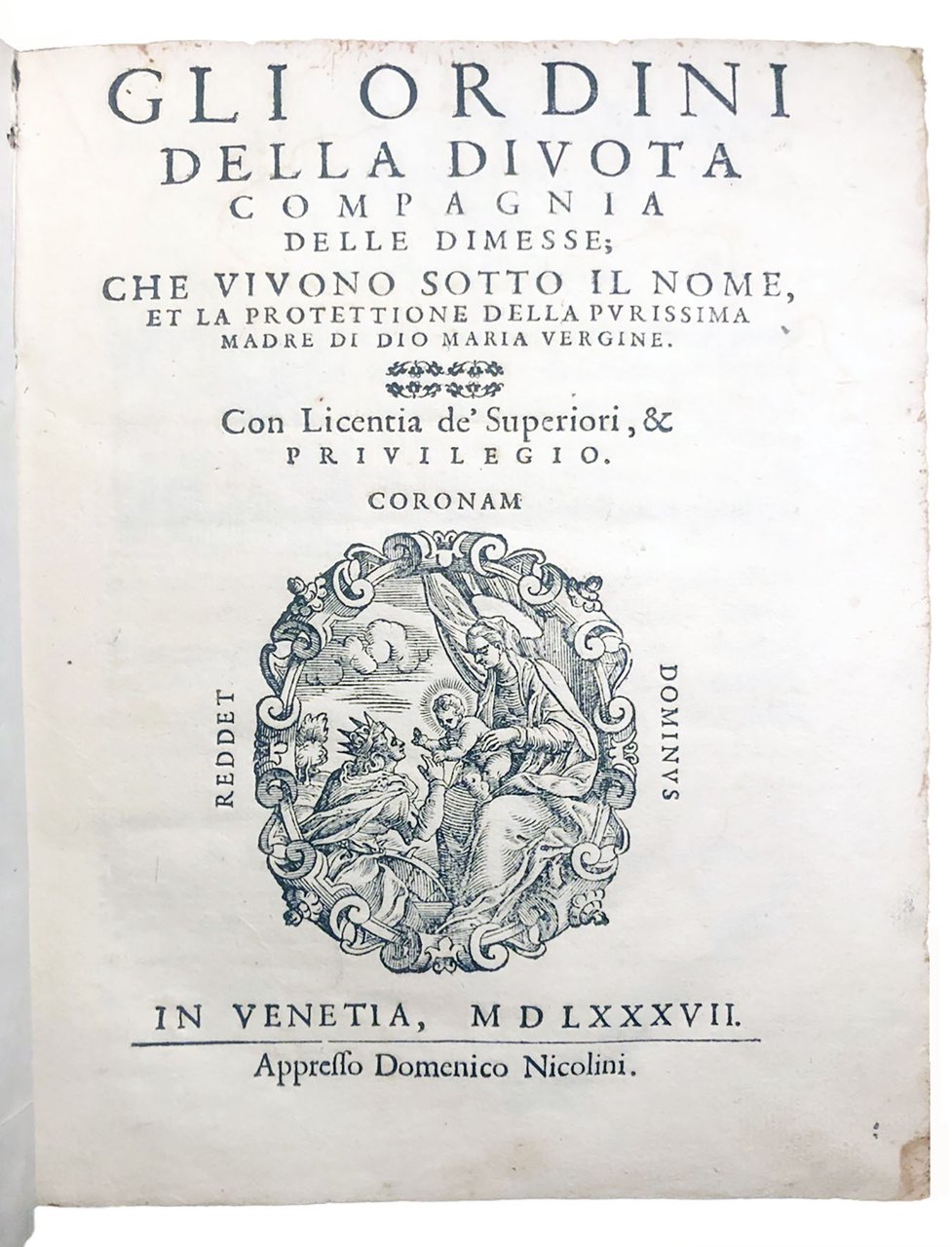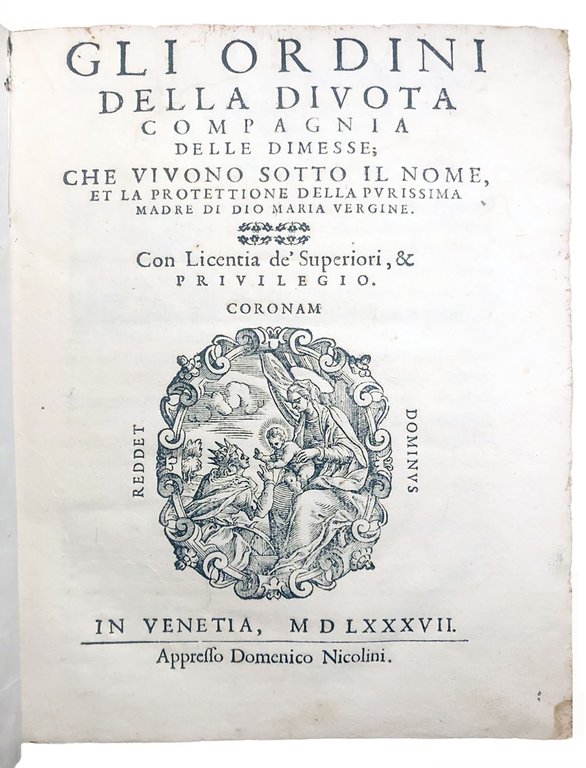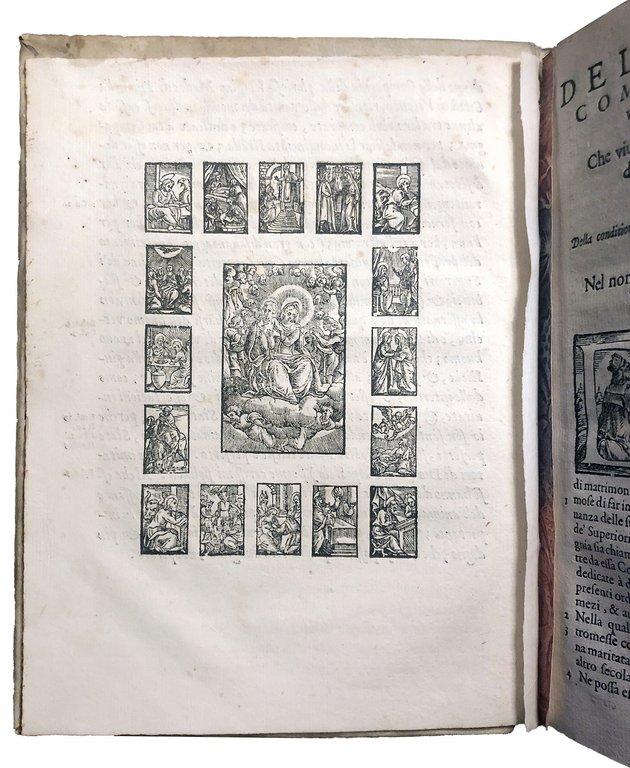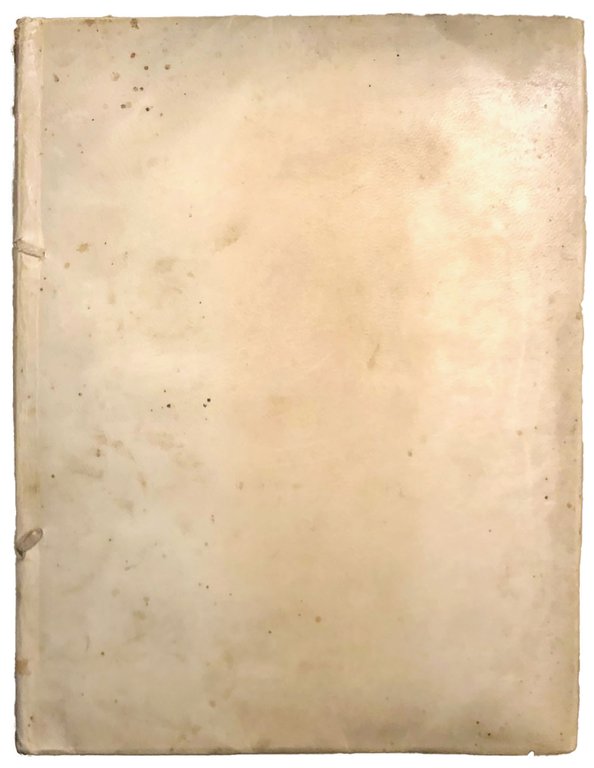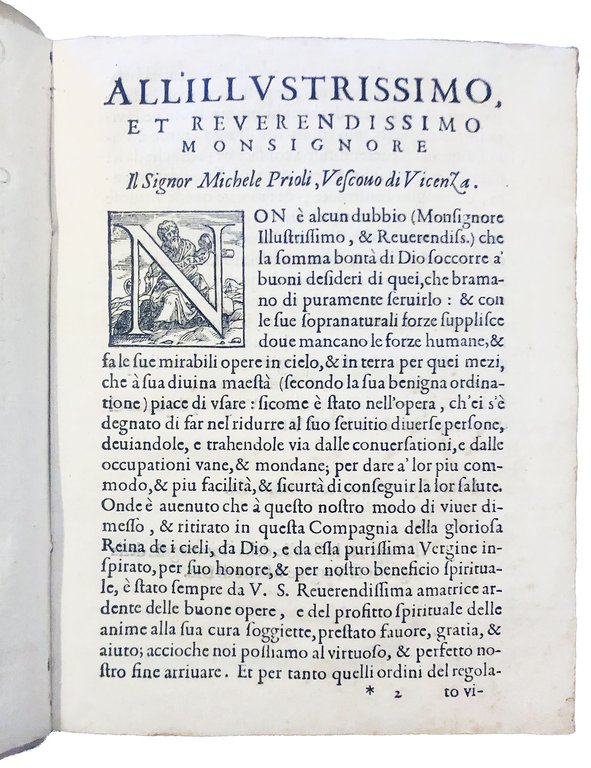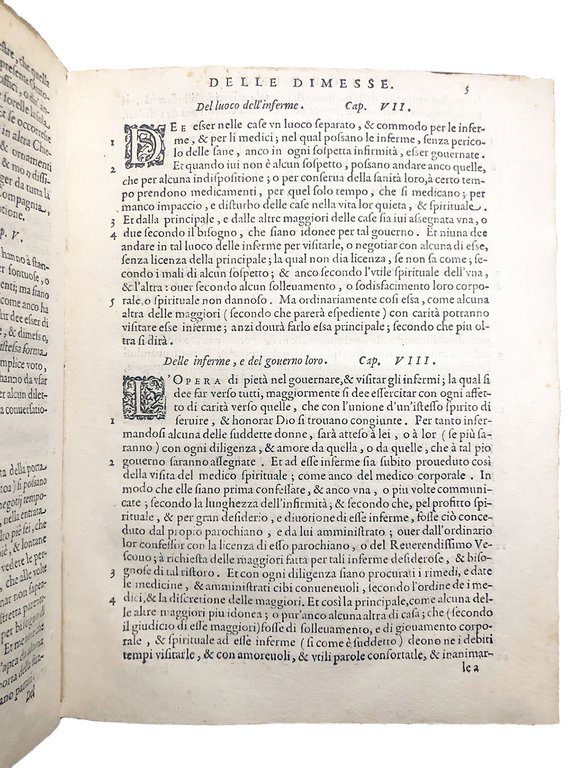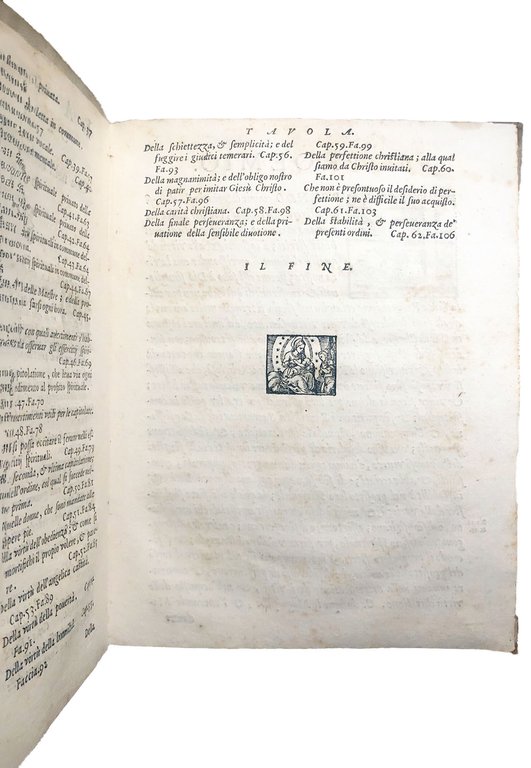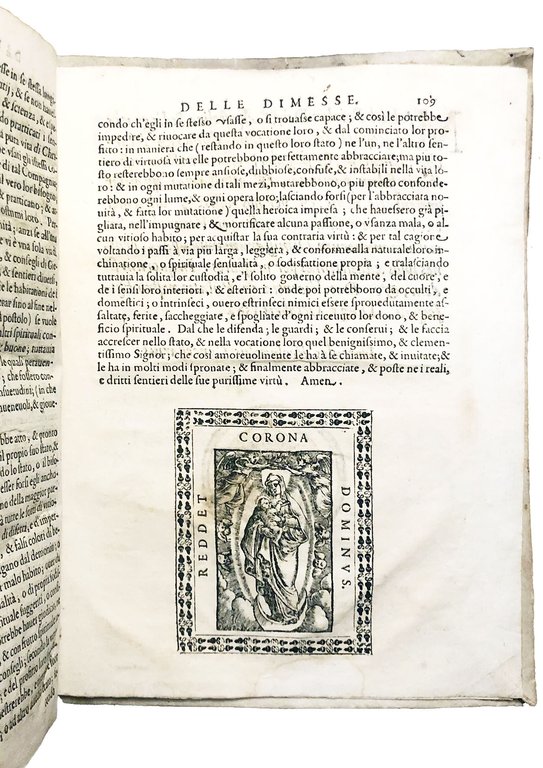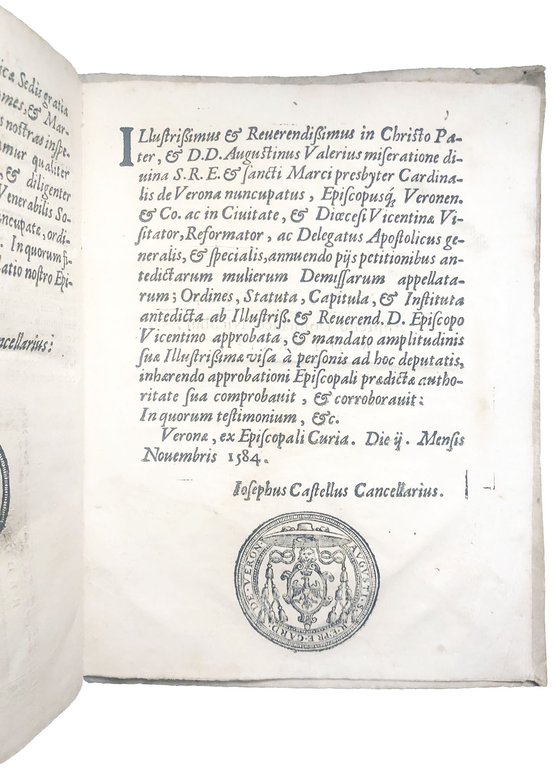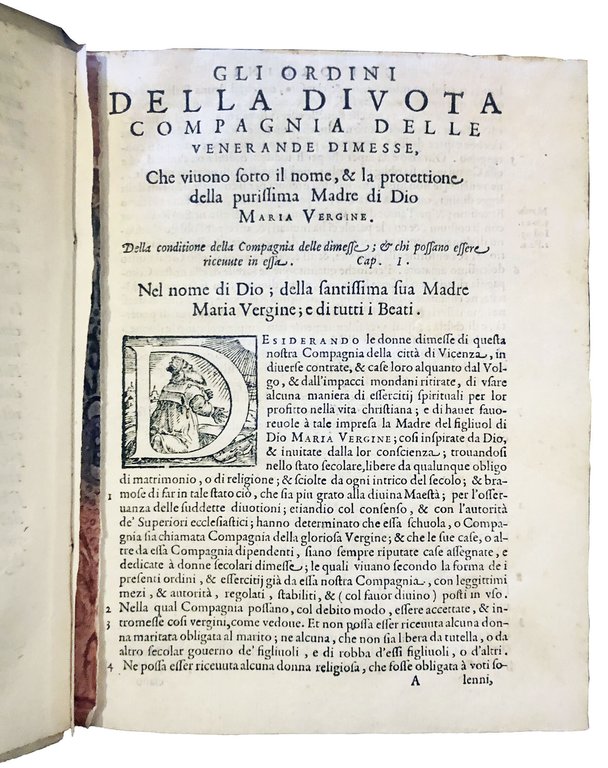Gli Ordini della divota Compagnia delle dimesse; che vivono sotto il nome, et la protettione della purissima Madre di Dio Maria Vergine
Gli Ordini della divota Compagnia delle dimesse; che vivono sotto il nome, et la protettione della purissima Madre di Dio Maria Vergine | Rare and modern books | PAGANI, Antonio (1526-1589)
Gli Ordini della divota Compagnia delle dimesse; che vivono sotto il nome, et la protettione della purissima Madre di Dio Maria Vergine
Gli Ordini della divota Compagnia delle dimesse; che vivono sotto il nome, et la protettione della purissima Madre di Dio Maria Vergine | Rare and modern books | PAGANI, Antonio (1526-1589)
Payment methods
- PayPal
- Credit card
- Bank transfer
- Pubblica amministrazione
- Carta del Docente
Details
- Year of publication
- 1587
- Place of printing
- Venice
- Author
- PAGANI, Antonio (1526-1589)
- Publishers
- Domenico Nicolini da Sabbio
- Keyword
- Quattro-Cinquecento
- State of preservation
- Good
- Languages
- Italian
- Binding
- Hardcover
- Condition
- Used
Description
CONGREGATIO FILIARUM AB IMMACULATA CONCEPTIONE - COMPAGNIA DELLE DIMESSE
4to (196x150). [12], 109, [3] pp. Collation: *6 A-O4. Woodcut device with St. Catherine of Alexandria kneeling before the Virgin Mary and Child on the title page, woodcut vignette of the Virgin Mary and Child in heaven surrounded by 16 smaller vignettes of the four Evangelists and 12 events from the life of the Virgin on l. *6v, woodcut vignette of the Virgin Mary and Child in heaven with angels within a typographic frame on l. O3r, woodcut coats-of-arms of the Cardinals Michele Priuli and Agostino Valier facing each other at the bottom of their respective letters of approval of the Ordini on ll. O3v-4r, colophon on l. O4v. With a dedication by the master and sisters of the Congregation to the Bishop of Vicenza Michele Priuli (1547-1603) dated 4 April 1587, followed by another dedication addressed by Antonio Pagani (from Monte San Felice, 1 September 1584) to the sisters of the Congregation and in particular to patronesses Deianira and Angela Valmarana, and Isabetta Franceschini who helped him to found the Order. With several historiated and decorative woodcut initials. Roman and italic types. 18th-century vellum, pastedowns covered with colored floral paper. A clean, well-preserved copy.
First edition (reprinted in 1617, 1672, and 1889) of the statutes of the Congregation of the “Suore dimesse figlie di Maria Immacolata”, a female religious institution founded in Vicenza in 1579 by Antonio Pagani, a friar of the local convent of the Minor Observants of San Biagio. In 1584 the Bishop of Vicenza, Michele Priuli (1547-1603) and the Apostolic Visitor in Vicenza, Agostino Valier (1531-1606) approved the congregation and its statutes (their letters of approval dated 1584 are printed at the end of the edition together with their coats-of-arms, ll. O3v-4r). The new order quickly spread to other towns of the Republic of Venice: in 1595 a new institute was founded in Murano, followed by others in Thiene, Schio, Feltre, Verona, Bergamo, Verona, Padua (1615), and Udine (1656). In 1810, only the houses of Udine and Padua survived the Napoleonic suppression of the religious orders. The Dimesse still exist today and, since 1842, have devoted themselves mainly to the education of girls (dimesse.it/about-us/).
The Dimesse were grouped together in numbers of no more than nine, initially in different houses in Vicenza. They were all widows or young women who wished to begin a life of exclusive Christian poverty, deprived of the presence of outsiders. These women were not obliged to take vows, but they did follow a rather strict rule. A “massaro” acted as an intermediary with the outside world; the “nuns” praied during the day in honour of the Virgin Mary, did works of charity, received strangers who could stay no longer than three days; they could receive visits from relatives only on the 14th of each month; any increase in income had to be given to the poor of Christ. The internal structure of the rule provided for the annual election of a female adviser, the presence of a confessor and a chaplain at masses, and the observance of chastity, poverty and humility.
Antonio Pagani was born in Venice and studied canon and civil law in Padua, graduating in 1545. Influenced by Sister Paola Antonia Negri of the Compagnia delle Angeliche, Pagani entered the Order of the Bernabites in 1546 and was ordained a priest in 1550. In 1557 he entered the Franciscan Order, first in Udine and then in 1558 in Venice at the convent of San Francesco della Vigna. Between 1559 and 1562 he visited several towns in Veneto and Istria as a much sought-after teacher and preacher. In 1562 the general of his Order sent him to the Council of Trent. In 1565 he was transferred to the monastery of San Biagio in Vicenza. The newly appointed Bishop Matteo Priuli entrusted him with the reorganisation of the diocese of Vicenza. It was in this city that Pagani founded the Compagnia dei Fratelli della Croce and, i
